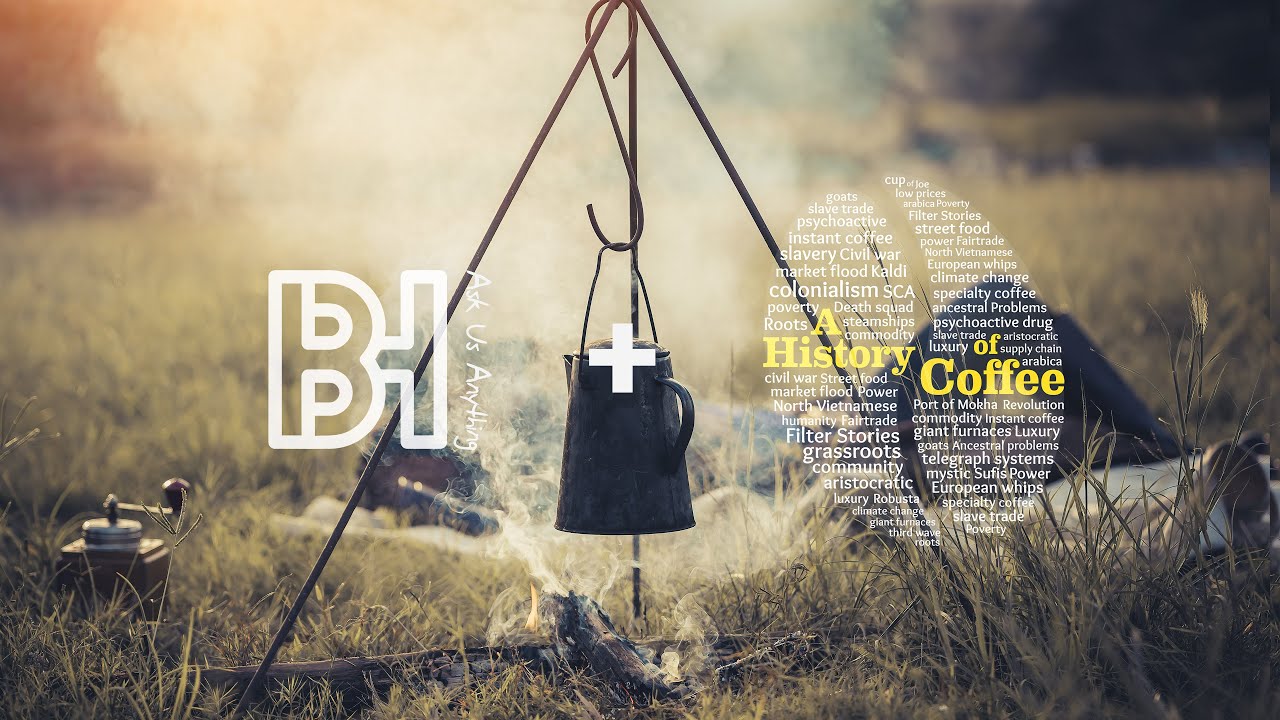From the bustling coffee houses of 17th-century England to the long trails of American settlers in the 1800s, coffee has a rich and varied history. This beloved beverage has not only been a morning pick-me-up but also a significant cultural and economic force.
However, the story of coffee isn’t just about the beans. It’s about the people, the journeys, and the historical changes that coffee has influenced. Therefore, let’s embark on a fascinating exploration of coffee’s history, its spread to different parts of the world, and its social impact.
The Journey of Coffee to the Caribbean
In the early 1700s, coffee spread far and wide, including to the French colonies. This expansion was significant for both the economy and the social structure of these regions.
A notable tale involves a French noble, Declieu, who claimed he brought a coffee plant to Martinique. This story, while romantic, raises questions about its accuracy.
It is believed the coffee plant first arrived at the French Botanical Garden from Amsterdam. From there, Declieu supposedly took it to Martinique, leading to the island’s coffee boom.
Many elements of this story seem plausible. However, it’s also possible that coffee reached Martinique through other means, like from the neighboring Dutch colony of Surinam.
In addition to Martinique, the Caribbean islands, including Haiti, became major coffee producers. This cultivation heavily relied on the exploitation and enslavement of people, which is a dark chapter in coffee history.
Coffee on the Oregon Trail
In the 1800s, American settlers moved westward on the Oregon Trail, bringing coffee with them. Coffee was essential for these long journeys.
Travelers purchased green coffee beans from wholesalers before setting off. These beans were roasted and brewed over open fires during the journey.
Early settlers often used the ‘cowboy coffee’ method, where coffee grounds were boiled in water and then strained. This method was rudimentary but effective.
The coffee consumed on the trail was likely low-quality, often from Brazil. It was known as ‘Rio’ and wasn’t the most delicious, but it kept the pioneers going.
As time progressed, pre-roasted and ground coffee became more common. Brands like Arbuckles emerged, providing a more convenient coffee option for travelers.
England’s Penny Universities
In 1600s England, coffee houses became centers of knowledge and discussion, often referred to as ‘Penny Universities.’
For a penny, one could buy a cup of coffee and gain access to a wealth of information from other patrons. This was a cheap way to learn from diverse conversations.
The term ‘Penny University’ was indeed used during this period. It highlighted the value of coffee houses as spaces for intellectual exchange.
The cost of a penny back then can be compared to about £18 today. This was not cheap and reflected the value of education and information traded in these coffee houses.
The popularity of coffee houses in England significantly impacted trade, politics, and culture during the 17th century. They were more than just places to drink coffee—they were hubs of social activity.
The Evolution of Coffee Consumption
Throughout the history of coffee, its consumption methods have significantly evolved. From open-fire roasting to pre-packaged coffee, the journey has been remarkable.
In the early days, coffee was a luxury commodity, often consumed by the elite. Over time, it became more accessible to the general population.
Technological advancements played a significant role in this evolution. The introduction of pre-roasted coffee, for instance, made it easier for people to enjoy coffee without the hassle of roasting beans themselves.
Moreover, the industrial revolution facilitated mass production and distribution of coffee. This development helped coffee become a staple beverage worldwide.
Today, coffee continues to evolve with innovations like instant coffee, single-serve pods, and specialty coffee shops. The journey of coffee from a luxury item to a daily necessity is a testament to its enduring appeal.
The Social Impact of Coffee
Coffee has not only been a popular beverage but also a catalyst for social change. Its history is intertwined with social, economic, and political events.
In the 17th and 18th centuries, coffee houses were places where people gathered to discuss ideas and form movements. They played a crucial role in the Enlightenment and other intellectual movements.
Coffee’s role in social interactions extends beyond Europe. In the Middle East, coffee ceremonies are integral to community interactions and hospitality.
The spread of coffee also had economic impacts. It became a major export commodity, driving economies in coffee-growing regions.
Unfortunately, the coffee industry has also been linked to exploitation. The reliance on enslaved labor in plantations is a dark aspect of coffee’s history that cannot be overlooked.
The Future of Coffee
As we look to the future, the coffee industry faces new challenges and opportunities. Sustainability is a significant concern, with efforts to make coffee production more eco-friendly.
Innovations in coffee technology continue to emerge. From better brewing methods to advancements in farming techniques, the future of coffee looks promising.
Consumer preferences are also shifting. There is a growing demand for ethically sourced and high-quality coffee. Brands are responding to these trends by offering more transparent and sustainable options.
In summary, coffee’s journey from a luxury item to a global staple is truly remarkable. Its spread across continents has been influenced by cultural exchanges, colonial ambitions, and technological advancements.
Meanwhile, the social impact of coffee cannot be understated. From sparking intellectual discussions in 17th-century England to sustaining pioneers on the Oregon Trail, coffee has been a catalyst for change. Thus, as we look to the future, focusing on sustainability and ethical practices will be crucial for the coffee industry to continue thriving. This fascinating history of coffee underscores its enduring appeal and importance in our daily lives.
